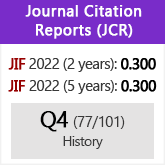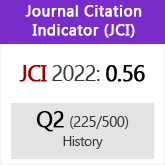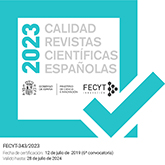Reconstructing memory narratives on Facebook with Digital Methods
DOI:
https://doi.org/10.3989/chdj.2018.014Keywords:
Digital methods, Social media, Facebook, Spanish civil warAbstract
Social platforms are playing an increasingly more important role in different aspects of our daily lives, which can range from the most mundane to such crucial processes as the transmission of meanings and values in our society. Much of the interest lies in the fact that storytelling on social networks is a collective process in which users participate by creating, sharing and commenting on content. All these actions generate digital traces that are easily accessible, in a non-intrusive and automated manner, which represents an unprecedented opportunity to investigate the mediation of social and cultural phenomena. Digital Methods is an epistemological proposal that, aligned with Studies in Science, Technology and Society (STS), assumes the existence of a technological mediation of social and cultural practices and uses computational techniques, not only to extract the digital traces left by the users of these social networks, but also to analyze and display their content. This article takes as a case study the representation of the Spanish Civil War on Facebook to exemplify the affordances of such a methodological approach to investigate the processes of generation, diffusion and representation of historical knowledge.
Downloads
References
Agre, P. E. (1994) "Surveillance and capture". Information Society, 10 (2), 101-127. https://doi.org/10.1080/01972243.1994.9960162
Bastian, M.; Heymann, S.; Jacomy, M. (2009) "Gephi: an open source software for exploring and manipulating networks". ICWSM (8), 361-362.
Ben-David, A.; Matamoros-Fernandez, A. (2016) "Hate speech and covert discrimination on social media: Monitoring Facebook pages of extreme-right political parties in Spain". International Journal of Communication (10), 1167-1193.
Blondel, V. D.; Guillaume, J.; Lambiotte, R.; Lefebvre, E. (2008) "Fast unfolding of communities in networks". Journal of statiscal mechanics: theory and experiment, 2008, 10. https://doi.org/10.1088/1742-5468/2008/10/P10008
Boyd, D.; Crawford, K. (2011) "Six provocations for Big Data". A decade in Internet tiem: symposium on the dynamics of the Internet and society. Rochester: Social Science Research Network.
Coromina, Òscar (2017) "Pugna por el relato en los contenciosos políticos. El caso del proceso participativo del 9N de 2014". El profesional de la información , 26 (5): 884-893. https://doi.org/10.3145/epi.2017.sep.10
Ellison, N. B.; Vitak, J.; Gray, R. and Lampe, C. (2014). "Cultivating social resources on social networking sites: Facebook relationship maintenance behaviors and their role in social capital processes". Journal of Computer-Mediated Communication , 19 (4), 855-870. https://doi.org/10.1111/jcc4.12078
Ellison, N.; Boyd, D. (2013) "Sociality through social network sites. In W. H. Dunton". The Oxford Handbook of Internet Studies (151-172). Oxford: Oxford University Press.
Facebook Inc. (2017). Facebook Newsroom. Retrieved 10/November/2017 from Facebook: https://es.newsroom.fb.com/company-info/
Facebook Inc. (2017). Anuncios de Facebook. Retrieved 29/november/2017 from Facebook para empresas: https://www.facebook.com/business/products/ads
Fernández Pe-a, E.; Coromina, Ò.; Gila, J. M. (2017) "Nature of engagement on Facebook during London 2012 olympic games: insight inot public participation in terms of language and gender". South African Journal for Research in Sport, Physical Education and Recreation , 39 (1:2): 135-151.
Gerlitz, C.; Helmond, A. (2013) "The like economy: social buttons and the data-intensive web". New media & society , 15, 1349-1365. https://doi.org/10.1177/1461444812472322
Giglietto, F.; Rossi, L.; Bennato, D. (2012). "The open laboratory: limits and possibilities of using Facebook, Twitter, and Youtubue as a Research Data Source". Journal of technology in human services , 30 (3-4), 145-149. https://doi.org/10.1080/15228835.2012.743797
Hille, S.; Bakker, P. (2014) "Engaging the social news use". Journalism Practice, 8 (5): 563-572. https://doi.org/10.1080/17512786.2014.899758
Jacomy, M.; Heymann, S.; Venturini, T.; Bastian, M. (2011). "Forceatlas2, a continous graph layout algorithm for handy network visualization". Medialab center of Research , 560.
Jenkins, Henry. (2006). Convergence Culture. New York: New York University Press.
Kaplan, Andreas M.; Haenlein, M. (2010) "Users of the world unite! The challenges and oportunities of Social Media". Business horizons , 53.1, 59-68. https://doi.org/10.1016/j.bushor.2009.09.003
Kim, W.; Jeong, O. R.; Lee, S. W. (2010). "On social web sites" Information Systesm , 35 (2).
Langlois, G.; Elmer. G. (2013). "The research politics of social media platforms". Culture Machine, 14.
Latour, Bruno (2007) "Beware, your imagination leaves digital traces". Times Higher Literary Supplement , 6.4.
Latour, Bruno. (2010). "Tarde's idea of quantification". In M. Candea, The social after Gabriel Tarde: debates and assessments (pp. 145-162). New York: Routledge.
Latour, B.; Jensen, P.; Venturini, T.; Grauwin, S.; Boulier, D. (2012). "The whole is always smaller than its parts". British Journal of sociology , 590-615. https://doi.org/10.1111/j.1468-4446.2012.01428.x PMid:23240834
Lazer, D.; Pentland, A.; Adamic, L.; Sinan, A.; Laszlo, A.; Brewer, D.; Christakis, N.; Contractor, N.; Fowler, J.; Gutmann, M.; Jebara, T.; King, G.; Macy, M.; Roy, D.; Van Alstyne, M. (2009) "life in the network: the coming age of computational social science". In Science 323(5915): 721–723. https://doi.org/10.1126/science.1167742 PMid:19197046 PMCid:PMC2745217
Lenhart, Amanda (2009) Adults and social network sites. Pew Research Center. PMCid:PMC5581936
Manovich, L. (2011) "Trending: the promises and the challenges of big social data". In M. K. Gold, Debates in digital humanities (pp. 460-475). Minneapolis: The university of Minnesota Press.
Marres, N. (2012) "The redistribution of methods: on intervention in digital social research, broadly conceived". The sociological review , 60:S1, 139-165. https://doi.org/10.1111/j.1467-954X.2012.02121.x
Marres, N.; Weltevrede, E. (2013) "Scraping the social? issues in live social research". Journal of cultural economy , 6 (3), 313-335. https://doi.org/10.1080/17530350.2013.772070
McQuail, Denis (1994). Mass comunication theory: An introduction. Sage Publications. PMid:7848492
Meraz, S.; Papacharissi, Z. (2013) "Networked Gatekeeping and Networked Framing on #Egypt". The International Journal of Press/Politics , XX (X), 1-29. https://doi.org/10.1177/1940161212474472
Mollen, A.; Wilson, H. (2010)" "Engagement, telepresence and interactivity in online consumer experience: Reconciling scholastic and managerial perspectives". Journal of business research, 63(9), 919-925. https://doi.org/10.1016/j.jbusres.2009.05.014
Musial, K.; Kazienko, P. (2012) "Social networks on the Internet"- World Wide Web 16, 16 (1), 31-72. https://doi.org/10.1007/s11280-011-0155-z
Netvizz (2017). Amsterdam: Digital Methods Initiative, Bernhard Rieder.
Papacharissi, Zizi. (2015). Affective Publics. New York: Oxfort Universtiy Press.
Poell, T.; Abdulla, R.; Rieder, B.; Woltering, R.; Zack, L. (2015). "Protest leadership in the age of social media". In Information, Communication & Society, 19 (7): 994-1014. https://doi.org/10.1080/1369118X.2015.1088049
Puschmann, C.; Burgess, J. (2013) "The Politics of Twitter Data". In K. Weller; A. Bruns; J. Burguess; M. Mahrt; C. Puschmann, Twitter and Society (pp. 43-54). New York: Peter Lang Publishers. https://doi.org/10.2139/ssrn.2206225
Rader, E.; Gray, R. (2015) "Understanding user beliefs about algorithmic curation in the facebook news feed". In Proceedings of the 33rd Annual ACM Conference on Human Factors in Computing Systems (173-182). Seoul: ACM. https://doi.org/10.1145/2702123.2702174
Rains, S. A.; Brunner, S. R. (2015) "What can we learn about social networking sites by Studying Facebook? A call and recommendations for research on social network sites". New Media & Society, 17 (1), 114-131. https://doi.org/10.1177/1461444814546481
Rieder, Bernhard. (2013) "Studying Facebook via data extraction: the Netvizz Application". Proceeding of the 5th Annual ACM Web Science Conference (pp. 346-355). ACM. https://doi.org/10.1145/2464464.2464475
Rogers, Richard (2013). Digital Methods. Cambridge, Massachusetts: MIT Press. https://doi.org/10.7551/mitpress/8718.001.0001
Stewart, Rebecca. (28 de february de 2017). Facebook tweaks its algorithm to give more prominence to posts with "reactions". Retrieved 18 de november de 2017 from Business Insider: http://www.businessinsider.com/facebook-tweaks-algorithmto-give-more-value-to-posts-with-reactions-2017-2
Thelwall, Mike (2009). "Social network sites: Users and uses". In M. (. Zelkowitz, Advances in Computers (pp. 19-73). Amsterdam: Elsevier. PMCid:PMC3188415
Van Dijck, Jose. (2013). "'You have on identity': performing the self on Facebook and Linkedin". Media, Culture & Society , 35 (2), 199-215. https://doi.org/10.1177/0163443712468605
Published
How to Cite
Issue
Section
License
Copyright (c) 2019 Consejo Superior de Investigaciones Científicas (CSIC)

This work is licensed under a Creative Commons Attribution 4.0 International License.
© CSIC. Manuscripts published in both the printed and online versions of this Journal are the property of Consejo Superior de Investigaciones Científicas, and quoting this source is a requirement for any partial or full reproduction.All contents of this electronic edition, except where otherwise noted, are distributed under a “Creative Commons Attribution 4.0 International” (CC BY 4.0) License. You may read here the basic information and the legal text of the license. The indication of the CC BY 4.0 License must be expressly stated in this way when necessary.
Self-archiving in repositories, personal webpages or similar, of any version other than the published by the Editor, is not allowed.

















